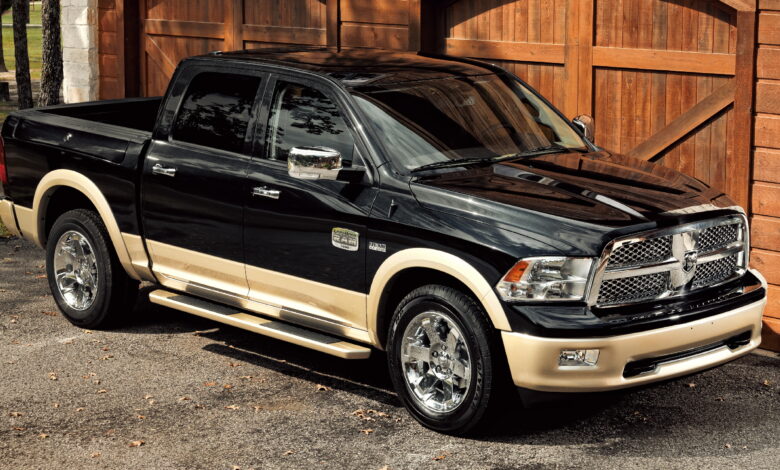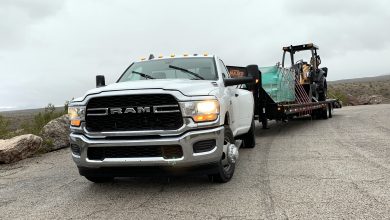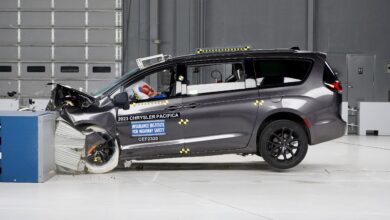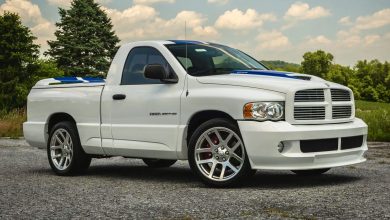
The National Highway Traffic Safety Administration (NHTSA) Office of Defects Investigation (ODI) recently concluded an investigation into airbag control units (ACUs) produced by ZF-TRW that were installed in various vehicles, including Dodge, Fiat, Jeep®, and Ram products. The investigation focused on whether these ACUs, which manage the deployment of airbags and seatbelt pre-tensioners, had a safety-related defect that could prevent airbags from deploying during severe crashes. The issue stems from a potential failure in the ACU’s electronics, particularly the DS84 application-specific integrated circuit (ASIC) within the unit.

The ACU receives signals from crash sensors and is responsible for deploying the vehicle’s airbags and pre-tensioners when needed. The DS84 ASIC, which plays a critical role in interpreting these signals, was found to be vulnerable to electrical overstress (EOS) in certain crash situations. This electrical overstress can occur when the crash damages vehicle wiring, leading to harmful electrical signals that overwhelm the DS84 ASIC before it can send a deployment signal to the airbag system. If the ASIC fails in this way, the airbags and pre-tensioners may not deploy, increasing the risk of injury during a crash.
The issue came to light in 2016 when Fiat Chrysler Automobiles (FCA) initiated a recall (16V-668) for certain Chrysler, Dodge, and Jeep vehicles manufactured between 2010 and 2014. The recall was prompted by reports of airbag non-deployment linked to the DS84 ASIC in vehicles with specific wiring layouts. These vehicles had sensor harnesses routed across the front of the vehicle, making them more susceptible to electrical overstress. However, other FCA vehicles equipped with the same ACU but with different harness layouts did not experience the same issues.

ODI extended its investigation beyond FCA to other manufacturers using the ZF-TRW ACU, including Hyundai, Honda, Kia, Mitsubishi, and Toyota. Through multiple information requests, ODI gathered data from these manufacturers and ZF-TRW to assess the scope of the issue. The investigation found that while the DS84 ASIC was prone to failure under certain conditions, the actual risk varied depending on how each manufacturer designed their ACU systems. Some manufacturers employed additional protections, such as circuit protection diodes and current-limiting resistors, to reduce the risk of electrical overstress.
Another critical factor in reducing risk is how the vehicle’s crash sensor wiring is routed. Vehicles with better-protected wiring or wires isolated from high-current power lines were less likely to experience an electrical overstress event.

The investigation ultimately revealed that four of the six manufacturers involved had experienced real-world cases of airbag non-deployment due to EOS. As a result, recalls were issued for affected models to address the problem. However, ODI’s five-year investigation found no further evidence of airbag failures in models that had not already been recalled.
The NHTSA concluded the investigation with the closure of several safety recalls, including 16V-668 (FCA), 18E-043, 18V-137, 18V-363, and 20V-024. While the investigation is now closed, the NHTSA reserves the right to take further action if new evidence of safety defects emerges. Although vehicles from manufacturers such as FCA, Honda, Hyundai, Kia, Mitsubishi, and Toyota were impacted, the recall efforts have mitigated the risks for these vehicles, and no further safety concerns were identified in models outside of the recall scope.

Key vehicles affected by this issue include:
- Dodge Nitro (2010-2011)
- Fiat 500 (2012-2019)
- Jeep Liberty (2010-2012), Wrangler (2010-2018), Compass (2015-2017), and Patriot (2015-2017)
- Ram 1500, 2500, 3500, 4500, and 5500 (2009-2012)
Despite these findings, vehicle owners are encouraged to remain vigilant and check whether their vehicles are subject to any outstanding recalls, especially those related to airbag deployment systems.






No replies yet
Loading new replies...
Join the full discussion at the Mopar Insiders Forum →